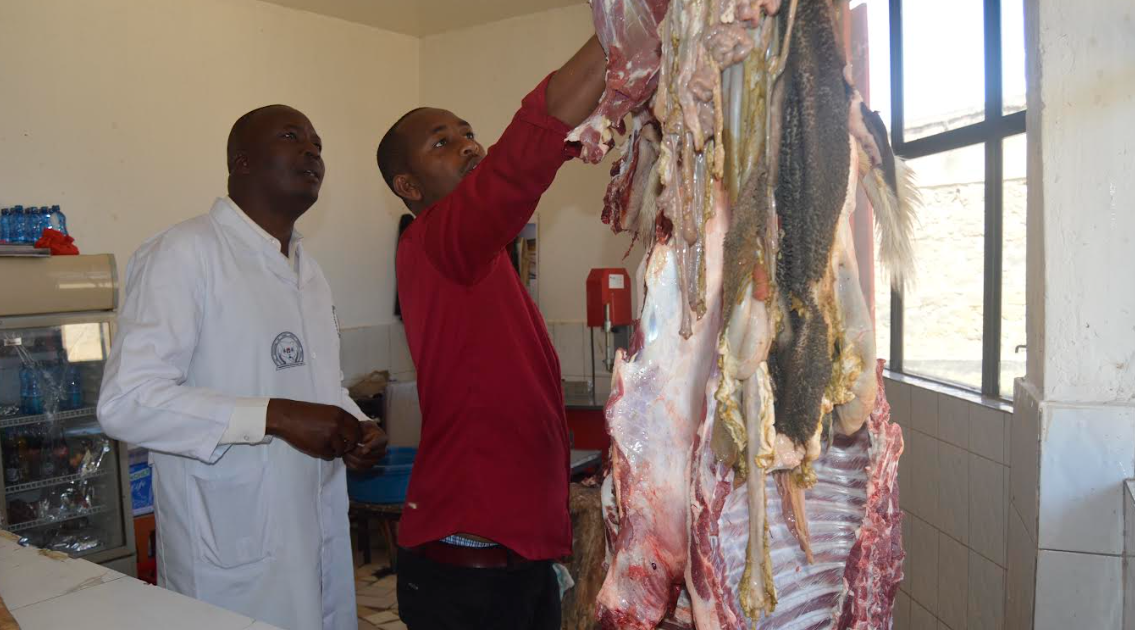Mulot slaughterhouse in Narok West subcounty has been closed indefinitely after it failed to meet the public health standards.
The slaughterhouse was closed after County Commissioner Kipkech Lotiatia and a host of officers from the Public Health Department made an impromptu visit to the structure and found it unfit to operate as a facility for slaughtering animals for human consumption.
Also present during the occasion were Narok Chief Officer in Charge of Preventive Services, Ms. Lucy Kashu, her Livestock Counterpart, Ms. Queen Kimorgo, and County Director of Health, Dr. Francis Kiio.

The officers issued the prohibition order after making an impromptu inspection in a number of butcheries in Narok town and three slaughter houses at the Ewaso Nyiro trading centre, but only the Mulot abattoir failed to meet the public health standards.
At the abattoirs, sickly animals that were on the verge of breathing their last were seen lying outside, struggling for their lives.
Though the abattoir managers negated the fact that the animals had been brought to be slaughtered, alleging that the animals had been weakened by long distance trekking, it was clear that most abattoirs were slaughtering weak and sickly animals.
Lotiatia warned the public health officers against laxity in carrying out their responsibilities and directed them to be aggressive in inspecting all the slaughterhouses in the county to avoid exposing members of the public to consumption of unhealthy meat.
The CC advised livestock farmers to find better ways of disposing of their infected animals other than taking sick animals to slaughterhouses, where they end up being slaughtered and meat consumed by unsuspecting customers.
“The public health officers should make regular impromptu visits to the slaughterhouses and butcheries. Any butchery selling meat without the official stamp should be closed immediately,” he said.
Also, members of the public were asked to be on high alert and report any farmer who transports a sickly animal to the slaughterhouse.
Ms. Kashu threatened to fire public health officers who neglect their crucial responsibility, saying her department will not sit back and wait to see unhealthy meat being sold to the public.
She asked members of the public to look for the official stamp on the meat they buy from butcheries to prove that the meat was well inspected.
By Ann Salaton





